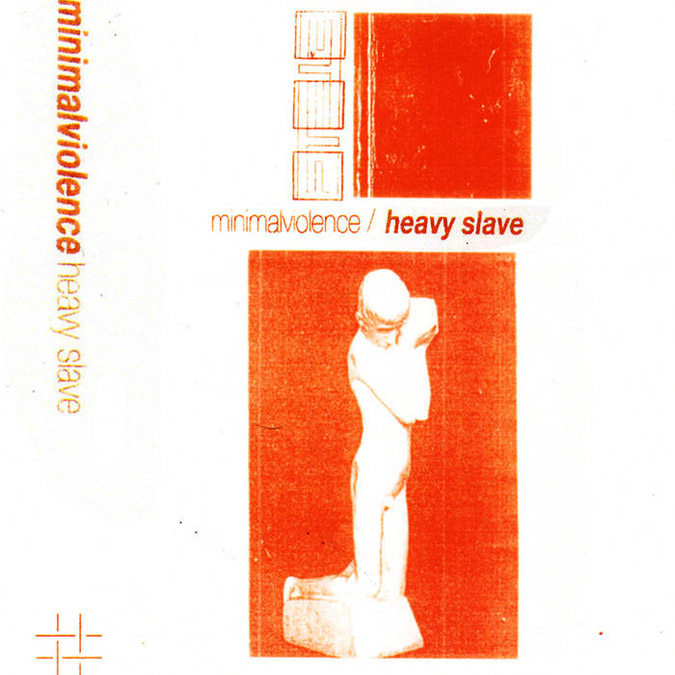Finding potency in its discursiveness, the debut from Minimalviolence (a collaborative project comprising of Ashlee Luk, also of Lié, and Lida P) is marked by a certain internal motion. Calling this a dance album would ignore how effectively details in the sound are rendered through the balancing of elements. On “Linguistic Hardcore” (a nod to Cosey Fanni Tutti), we get rich synth tones over industrial aggression and a nervy hi-hat loop that evolves in the presence of obscured vocals. “Wax Palms (Bodyheat)” layers sharp industrial loops before a hypnotic melody slips everything into backwards motion.
Heavy Slave relies on some techno tropes, sure, but the album is genre-bending and multivalent, and that’s where it takes on weight conceptually. Textured encounters between sounds gives them shape and form — a process of reification, making sound an object in time. Multiple timelines, intersecting narratives, and distorted temporal passages are fruitful ways to think about Heavy Slave’s wager on time as something beyond tempo.
Textual allusions are also vital here. Traces of the human voice on this album (always indecipherable) evoke this, along with some of the issues of legibility and otherness raised in Anne Carson’s “The Albertine Workout” (from which the duo derive the question “What makes a slave heavy?”).
Carson’s poem details a set of parallel relationships. The first relationship involves the fictional character Albertine, the narrator’s object of desire in Proust’s In Search of Lost Time. The narrator imprisons Albertine in his home, but ultimately is left with only frustration and ennui. Albertine is, the narrator assumes, a lesbian, and is generally unresponsive to the narrator’s desires, although he manages to force himself upon her. Eventually, Albertine escapes and subsequently dies in an accident. The second relationship — between Proust and his chauffeur, Alfred Agostinelli — serves as the real-life inspiration for the first. Their relationship is less documented, but it is clear that Proust was infatuated. Agnostinelli was also killed tragically in an accident.
The porousness of fiction and real life confounds the already leaky set of relational dynamics in Carson’s text. Similarly, Heavy Slave offers many configurations of time all at once: time organized along lines of desire; time organized along lines of trauma; felt time and real time; time shared and time insular. Ultimately, as a collaborative and conceptual piece, this album rests on discursive re-imaginings.


